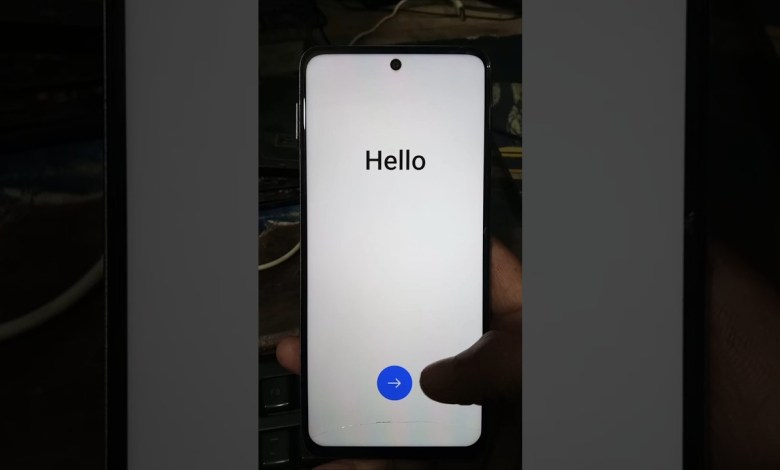Unlocking Mysteries: How to Bypass FRP on Your OPPO A79 5G #oppo #oppofindn #oppoenco

Oppo A79 5g Frp Bypass #oppo #oppofindn #oppoenco #androidblue #oppomobiles #androidp #shorts
The Power of Praise: A Reflection on Spiritual Lyrics
Introduction
In a world overflowing with noise and chaos, the art of slowly immersing ourselves in soothing sounds brings forth a deep sense of peace. One profound source of tranquility can be found in spiritual music. A simple yet powerful chant, narrated through repeating phrases like "سبحان الله والحمد لله لا إله إلا الله الله أكبر," encapsulates both reverence and devotion. Let’s delve into the significance of these words, exploring their meanings and the emotions they evoke.
Understanding the Lyrics
"سبحان الله" (Subhanallah)
The phrase "سبحان الله" translates to "Glory be to God." When uttered, it signifies the speaker’s acknowledgment of the perfection and greatness of the Divine. It reminds us to focus on the beauty around us, appreciating the intricate details of creation that often go unnoticed. Each utterance serves as a gentle nudge toward mindfulness, cultivating gratitude within our hearts.
"الحمد لله" (Alhamdulillah)
"الحمد لله" means "Thanks be to God." This phrase underscores the importance of gratitude in a believer’s life. Each moment we express appreciation, we shift our perspective from one of lack to abundance. In times of struggle, saying "Alhamdulillah" can be a source of comfort, reminding us that there is always something to be thankful for, even in the darkest of times.
"لا إله إلا الله" (La ilaha illallah)
The declaration "لا إله إلا الله" translates to "There is no god but God." This profound statement solidifies the core of monotheism in Islam. It is a proclamation of faith, reminding individuals of the singular, unparalleled nature of God. This phrase encourages introspection and strengthens one’s relationship with the Divine, serving as a foundation for spiritual beliefs and practices.
"الله أكبر" (Allahu Akbar)
Finally, "الله أكبر" translates to "God is the Greatest." This acknowledgment serves as a reminder of God’s supremacy over all aspects of life. It challenges believers to recognize the vastness of God’s mercy and grandeur, eclipsing the challenges faced in daily life. The phrase acts as an anchor during moments of doubt, offering solace in the reminder that God is always present and greater than any trial.
The Emotional Impact of Repetition
The chant’s repetitive nature enhances its emotional resonance. Repetition in music, especially in spiritual contexts, can induce a meditative state. As one immerses oneself in the rhythmic patterns, the mind can begin to quiet down, leading to a state of serenity.
Creating a Meditative Experience
The use of repetitive phrases encourages individuals to enter a trance-like state. This is not dissimilar to practices found in various cultures and religions, where chanting or repetitive prayers foster a deeper connection to the divine. The mind gradually disengages from worldly thoughts, allowing the heart to feel a more profound connection to spirituality.
Cultivating Presence
Such chants can also serve as a means of grounding oneself in the present. During chaotic times, when our minds race with worries and anxieties, immersing ourselves in these words can root us back to the present, reminding us of our purpose and the Source of our strength.
The Role of Music in Spirituality
A Universal Language
Music has a unique ability to transcend language and cultural barriers. Regardless of background, the heartfelt nature of spiritual music can resonate with anyone. This particular chant, while deeply embedded in Islamic tradition, can evoke a sense of spirituality in listeners of all faiths.
Healing Power of Music
Numerous studies have demonstrated music’s healing properties. It can reduce stress, alleviate anxiety, and even lower blood pressure. In spiritual contexts, music aids in fostering feelings of well-being, peacefulness, and connectivity with the Divine.
Community Connection
Musical expressions often bring communities together. Group chanting or singing fosters a sense of belonging, reinforcing communal bonds. This can be especially significant for spiritual practices, where collective worship creates a shared experience that deepens faith and connection.
Personal Reflection and Spiritual Growth
A Journey Towards Self-Discovery
Engaging with these chants can invite listeners on a journey of self-discovery. The simplicity of the words encourages reflection, urging individuals to assess their beliefs and values. This can foster a greater understanding of one’s purpose, guiding individuals toward a more fulfilling spiritual path.
Daily Practices
Incorporating these chants into daily life can enhance one’s spiritual practice. Simply setting aside a few moments each day to recite the phrases can cultivate mindfulness and gratitude, marking the beginning or end of the day with intentions of peace and worship.
Conclusion
The phrases "سبحان الله والحمد لله لا إله إلا الله الله أكبر," when woven together in song, create a rich tapestry of spirituality, gratitude, and connection. They serve not only as reminders of faith but also as pathways to emotional healing, community bonding, and personal growth.
As the world continues to evolve, embracing moments of stillness through these spiritual chants can provide solace amid uncertainty, echoing the timeless truth that in worship and praise, we find peace. So, let us immerse ourselves in these words, repeating them throughout our days, invoking pride in our faith and an abiding love for the beauty that surrounds us.
#OPPO #A79 #Frp #Bypass #oppo #oppofindn #oppoenco













